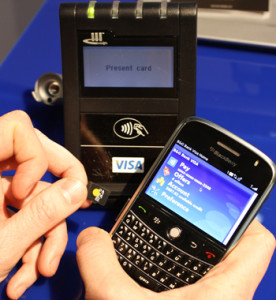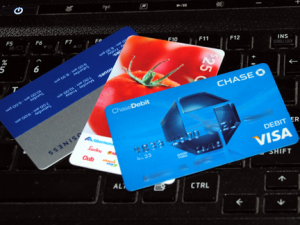Category: Environmentally Green
January 3rd, 2014 by Elma Jane
Results of a new survey on overall mobile use by consumers has several ramifications for payments using mobile devices. The report, from global management consultancy Deloitte, found the number of consumers who said their device is NFC-equipped more than doubled from 2012 to 2013. More importantly perhaps, for a technology many observers have pronounced dead and buried, of those whose devices are equipped with NFC technology, more than one-third said they have made a contactless payment using their phone in the past month.
The report also found that the number of app downloads decreased 13 percent this year in the U.S. and even more in other countries. Per-app spending also decreased during the year, but the report’s authors still believe the outlook for apps is positive.
The good news is, we see a lot of potential remaining in the apps market space over the long term. We believe that the overall declines indicated in this year’s survey may be due to increasing sophistication among consumers. It is likely that they have already obtained the core apps they prefer for work and play, with those choices persisting over time as they upgrade and change their devices said Craig Wigginton, vice chairman and U.S. telecommunications sector leader for Deloitte.
Posted in Credit card Processing, Electronic Payments, Environmentally Green, Mobile Payments, Near Field Communication, Smartphone Tagged with: apps, contactless, devices, equipped, mobile, nfc, outlook, payments, Per-app, phone, report, technology, upgrade
December 3rd, 2013 by Elma Jane
De-clutter
A messy workplace is annoying, distracting, and can get out of hand. Keep clutter at bay by regularly tidying up.
Clutter can also exist inside the mind. Having piles of paper on your desk can keep you from finding a pen, having too many thoughts can curb your focus.
Fix this by de-cluttering your mind. Use a mind-mapping tool to organize all the ideas, tasks, or worries in your head.
Eat your Frog Early
When you arrive in the office every morning, do you dive right into your biggest task or do you get the minor stuff out of the way first? Author and personal development coach Brian Tracy says that the former is more effective in terms of productivity.
In his book Eat That Frog!: 21 Great Ways to Stop Procrastinating and Get More Done in Less Time, Tracy cited a famous Mark Twain quote, “Eat a live frog first thing in the morning and nothing worse will happen to you the rest of the day.”
He used frog eating as a metaphor for task completion, in which the frog “is your biggest, most important task, the one you are most likely to procrastinate on if you don’t do something about it.” Finish that task as early as possible, and you can spend the rest of the day knowing that you’ve accomplished a big goal.
Resist the urge to complete smaller jobs first. Doing so will only feed your procrastination and won’t take you any further towards completing your big tasks.
When deciding on what to prioritize in your business, always put your highest-impact goals at the top of your to-do list. What step can you take today that will have the biggest effect on your company? Start with that, and either delegate or hold-off on the low-level tasks. This tough to do.
Follow the 80-20 Rule
The 80-20 rule, developed by Italian economist Vilfredo Pareto states that for many situations, about 80 percent of the effects or outcomes come from just 20 percent of the causes.
In business, the 80-20 rule comes into play when 80 percent of a company’s clients are generated from 20 percent of its sales staff, or when 80 percent of returns come from 20 percent of its customers.
Determine how the 80-20 principle applies to your business, then address that 20 percent so you can generate more results, or eliminate problems.
For instance, if you discover that 80 percent of your profits come from 20 percent of your customers, then nurture your relationships with those customers and reward them for their loyalty. Or perhaps you notice that 20 percent of your online marketing efforts are bringing in 80 percent of your site traffic. Stop spending resources on the low-performing strategies, and focus your efforts on the channels that work.
Have a Meeting Policy
If you must hold meetings in your company, keep them brief. Always have an agenda and a clear purpose for the meeting.
You may also want to consider having company-wide policies that tell people when and how to set-up meetings. Some companies for example, always hold meetings on the same day and time each week…e.g., Monday mornings, Thursday afternoons. This schedule enables people to plan their days and weeks more effectively.
Optimize your Relationships with Vendors
You optimize your site for speed and user-friendliness. Why not do the same for your suppliers and service providers?
Check with your vendors to ensure you’re working efficiently. Ask if there’s anything you can do to make their jobs easier, or recommend any improvements that they can implement. Don’t view your relationship as a service provider and client. Instead, treat your vendors as your partners.
Posted in Best Practices for Merchants, e-commerce & m-commerce, Electronic Payments, Environmentally Green, Internet Payment Gateway, Mobile Payments, Mobile Point of Sale Tagged with: agenda, business, ecommerce, loyalty, marketing, mind-mapping, online, optimize, organize, policies, prioritize, procrastinate, procrastinating, procrastination, spending, strategies, suppliers, task
November 21st, 2013 by Elma Jane
Eco Tips For Greening Business. Creating a greener office can result in a healthier and more productive work place, a lighter ecological footprint, increased staff morale and good news for your bottom line. So whether you work in an office, shop or factory, run your own business or manage a corporation… taking care of the environment is easier than you think.
Here’s some simple, yet effective tips for going green at work by saving energy, conserving natural resources and reducing landfill and preventing pollution.
A Switch to 100% Recycled Office Paper. Every tonne of paper recycled can save 17 trees. The best paper to buy is bleach-free, 100% post-consumer recycled paper (usually off-white or brown in color), because it uses up to 90 per cent less water and half the energy required to make paper from virgin timber, creates demand for waste paper that would normally end up in landfill, and no trees are cut down to make the paper. Genuine recycled paper is 100% made from post-consumer waste. This means the paper has been used at least once by consumers, collected, and reconverted to pulp to make paper again. But check the fine print because some paper manufacturers call paper recycled even when it uses pre-consumer waste… meaning pulp that never left the factory. A business is not truly recycling unless it buys recycled products.
Changing A Light Bulb. Compact fluorescents are 80% more energy efficient, and last 10 times longer than incandescent light bulbs. A switch from conventional light bulbs to energy efficient compact fluorescents can be one of the most effective things your business can do to reduce emissions and global warming, and it saves you money off your energy bill too.
Green Power. Your business can save tonnes of emissions a year, by switching to renewable sources such as solar, wind and geothermal energy.
Green Printer. Look for a printer who uses vegetable-based inks, and can assist you to choose paper made from sustainable forest fibres or better still, paper recycled from post-consumer waste. Next time you are arranging the printing of your stationery or printing material, get a comparison quote from a ‘green printer’. You might be pleasantly surprised to learn how competitive the costs are compared to traditional, alcohol-based, offset printing.
How White Is Your Paper? When you buy chlorine-free writing and copier paper you’re telling paper manufacturers that you demand safer alternatives. So, choose recycled paper with a high percentage of ‘post consumer’ waste, and look for the ECF or TCF symbols to ensure that environmental harm is minimized. ECF (Elemental Chlorine Free) means pulp is bleached without the use of elemental chlorine gas. Even better, TCF (Totally Chlorine Free) means pulp is bleached avoiding the use of chlorine at all. Paper manufacturers use chlorine to bleach paper bright white. The more chlorine our society uses, the more toxic substances such as dioxin there are in our water, air, soil, and in our bodies.
Implementing Green Cleaning Program. Green cleaning is not only good for the environment; it also increases workplace health and safety. Switch to environmentally responsible cleaning products and services.
Natural Air Filters Are Indoor Plants. Use Indoor plants they are natural air filters which can absorb airborne pollutants and radiation from computers while replenishing oxygen levels.
Put Your PC To Sleep. Save approx. $100 per year off your energy bill for every computer you switch off at the end of the day. If you are away from your computer for less than half an hour, put it in sleep mode, which reduces energy use to about 5% of full operating power. Also next time you’re replacing office computers, remember that laptops and notebooks use up to 90% less energy than a desktop PC. Many office computers never get switched off, needlessly consuming energy overnight and on weekends. A computer left on all day, every day uses 1,000 kilowatts of electricity over a year, producing more than a tonne of carbon emissions.
Recycling Program. Different Councils may have different regulations about what you can recycle. Kerbside collection has changed the face of office and household recycling, making it easier to reduce landfill.
Recycle The Cartridges From Your Printer, Fax And Copier For Free. Contact a free collection service that recycles all your ink jet and toner cartridges and guarantees zero waste to landfill.
Recycle Your Old Mobile Phone. Preserve the environment by keeping unused mobile phone out of landfill and recycling it back to reuse. Look for official industry recycling program that provides a solution to help clean up the environment while at the same time raising much needed funds for charities.
Treat Paper Like It Grows On Trees. Simple recycling measures can significantly reduce your waste removal expenses. Set your computer printing default to double-sided. Print out only what is necessary, and proof read documents carefully on screen to avoid having to print multiple copies. Use a paper tray to collect single-sided printed scrap paper for notes, or reuse it in your photocopier or fax machine. Place a paper recycling box under each desk, and encourage your team to transfer the contents into a centrally located recycling bin when full. Paper comprises up to 70 per cent of office waste, with 10,000 A4 sheets used for every worker each year. That’s equal to 10 million trees.
Waterless Urinals Installation. Every year, billions of litres of fresh drinking water are wasted in urinals flushing. Waterless urinals are best to use, absolutely no water while meeting the highest hygienic standards.
Go Green!!!
Posted in Electronic Payments, Environmentally Green Tagged with: electronic payments environmentally, energy efficient, environmentally green, green, greener office can, greening your business, lighter ecological footprint, merchant, payments environmentally green, service, the environment


